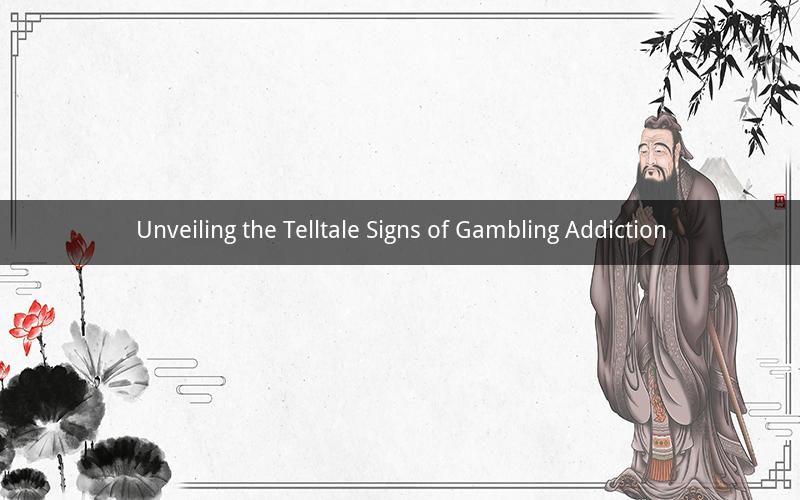
Gambling addiction, also known as gambling disorder, is a serious condition that affects millions of people worldwide. Identifying the signs of gambling addiction is crucial for early intervention and treatment. In this article, we will delve into the various indicators that may suggest someone is struggling with a gambling problem.
1. Preoccupation with Gambling
One of the most common signs of gambling addiction is an overwhelming preoccupation with gambling. Individuals may constantly think about gambling, planning their next bet, or reliving past gambling experiences. They may find themselves unable to concentrate on other activities or responsibilities due to their preoccupation with gambling.
2. Increased Time Spent on Gambling
As the addiction progresses, individuals may find themselves spending an increasing amount of time on gambling activities. This can lead to neglecting work, family, and social responsibilities. They may skip meals, cancel social engagements, or isolate themselves to accommodate their gambling habits.
3. Financial Difficulty
Gambling addiction often leads to significant financial difficulties. Individuals may experience frequent arguments with family members or creditors due to their gambling debts. They may hide their gambling activities, lie about their spending, or steal money to fund their addiction.
4. Relationship Problems
Gambling addiction can strain relationships with family, friends, and loved ones. Individuals may become secretive, defensive, or aggressive when confronted about their gambling. They may isolate themselves from others, leading to feelings of loneliness and isolation.
5. Emotional and Psychological Symptoms
Gambling addiction can cause a range of emotional and psychological symptoms. Individuals may experience mood swings, anxiety, depression, or irritability. They may also develop a sense of shame or guilt, which can further exacerbate their addiction.
6. Physical Symptoms
In some cases, gambling addiction can lead to physical symptoms. These may include headaches, insomnia, fatigue, or gastrointestinal issues. Individuals may also experience withdrawal symptoms when they try to stop gambling, such as irritability, anxiety, or restlessness.
7. Risky Behavior
Gamblers with addiction may engage in increasingly risky behavior to fund their addiction. This can include taking out loans, selling personal belongings, or even committing illegal activities to obtain money for gambling.
8. Failed Attempts to Stop
Individuals struggling with gambling addiction may have multiple failed attempts to stop or reduce their gambling. They may recognize the negative consequences of their behavior but find it difficult to break the cycle.
9. Chasing Losses
A common sign of gambling addiction is the "chasing losses" behavior. Individuals may continue to gamble in an attempt to recoup their losses, despite the fact that it is unlikely they will win back the money.
10. Denial and Minimization
Gamblers with addiction may deny or minimize their problem. They may downplay the severity of their gambling habits or blame others for their financial difficulties.
Frequently Asked Questions:
1. What is the difference between gambling and gambling addiction?
Gambling is a recreational activity, while gambling addiction is a chronic condition characterized by an inability to control gambling behavior, despite negative consequences.
2. Can gambling addiction be cured?
Gambling addiction is a treatable condition. With proper intervention and support, individuals can overcome their addiction and lead a fulfilling life.
3. How can I help someone with a gambling addiction?
Encourage the individual to seek professional help, offer support, and be patient. Avoid enabling their behavior by providing financial assistance or covering up for their gambling.
4. Are there any effective treatments for gambling addiction?
Yes, there are various effective treatments for gambling addiction, including therapy, support groups, and medication. The most suitable treatment approach depends on the individual's specific needs.
5. Can gambling addiction be prevented?
While there is no guaranteed way to prevent gambling addiction, individuals can reduce their risk by being aware of the signs, setting limits on their gambling, and seeking help when needed.
In conclusion, recognizing the signs of gambling addiction is essential for early intervention and treatment. By understanding the indicators and seeking help, individuals can break free from the cycle of addiction and rebuild their lives.